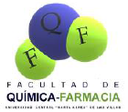Executive Secretary

7th International Symposium of Pharmaceutical Sciences
VII SICF
A novel polypeptide derived from tumor regression mediated by infection with Serratia marcescens was isolated at Center for Genetic Engineering and Biotechnology. This molecule was produced as a 50 kDa protein (P50) secreted into the culture medium. It reached biological activity after degradation and exposing its active site located at the carboxyl extreme. Natural degradation occurred after incubation at 37oC, during 12 hours in a non- specific way. Therefore, the reproducibility to obtain a pure preparation was not possible. The analysis of the amino acid sequence of the P50 showed one methionine at the 231 position, which is cleaved by the carboxylic extreme in the presence of cyanuric bromide. The use of a potential pathogenic microorganism (S. marcescens) and a toxic compound (BrCN) made this procedure risky. Therefore, a synthetic gen provided by GenArt Company was cloned in a bacterial plasmid and transformed in several E. coli strains, but W3110 was selected as the most favorable. Fermentation conditions were set at 5 L bench scale and scaled up 50 L working volume. Using experimental design, favorable conditions were established for cell growth and expression of recombinant polypeptide P25. After mechanical disruption, non-chromatographic and chromatographic purification steps, an Active Pharmaceutical Ingredient, able to be used as a parenteral product was obtained. In vitro and in vivo studies were brought about, showing security and a selective inhibitory effect on several tumor cell lines. The Clinical Trial Authorization application was presented to the Cuban Drug Regulatory Authority which approved Phase I Clinical trial.
A novel polypeptide derived from tumor regression mediated by infection with Serratia marcescens was isolated at Center for Genetic Engineering and Biotechnology. This molecule was produced as a 50 kDa protein (P50) secreted into the culture medium. It reached biological activity after degradation and exposing its active site located at the carboxyl extreme. Natural degradation occurred after incubation at 37oC, during 12 hours in a non- specific way. Therefore, the reproducibility to obtain a pure preparation was not possible. The analysis of the amino acid sequence of the P50 showed one methionine at the 231 position, which is cleaved by the carboxylic extreme in the presence of cyanuric bromide. The use of a potential pathogenic microorganism (S. marcescens) and a toxic compound (BrCN) made this procedure risky. Therefore, a synthetic gen provided by GenArt Company was cloned in a bacterial plasmid and transformed in several E. coli strains, but W3110 was selected as the most favorable. Fermentation conditions were set at 5 L bench scale and scaled up 50 L working volume. Using experimental design, favorable conditions were established for cell growth and expression of recombinant polypeptide P25. After mechanical disruption, non-chromatographic and chromatographic purification steps, an Active Pharmaceutical Ingredient, able to be used as a parenteral product was obtained. In vitro and in vivo studies were brought about, showing security and a selective inhibitory effect on several tumor cell lines. The Clinical Trial Authorization application was presented to the Cuban Drug Regulatory Authority which approved Phase I Clinical trial.
About The Speaker

Dr. José García Suárez






